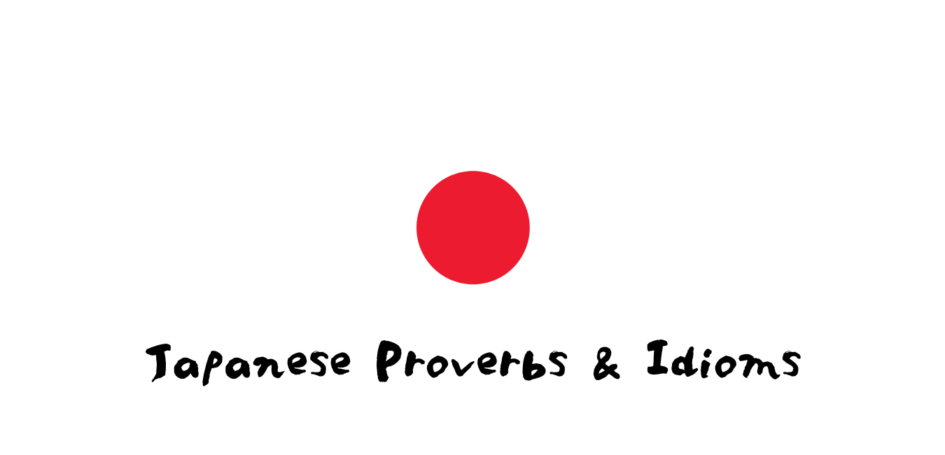In my earlier blog on Japanese Proverbs and Idioms i had covered a wide range of topics ranging from self development to general topics. However in this blog “Popular Japanese Proverbs and Idioms on Self-Development” i will be focusing on the topic of personal development. The Proverbs and Four-Character Idioms that have been presented here will provide you with a Japanese perspective towards self improvement. You can find some similarities with the western proverbs as well.
Immerse yourself in the Japanese wisdom that can help you to unleash your true potential for a purposeful and meaningful life.
Proverbs
親しき仲にも礼儀あり(Shitashiki naka nimo reigi ari)
Good manners are a must even with good friends
This proverb teaches us the importance of boundaries. Even in case of close friendship there will be a line that should not be crossed. Just because a person is close it does not mean that you can take advantage of the person or invade their privacy. There is an english proverb that provides the same meaning, “Good fences make good neighbors”. A relationship with mutual respect will go a long distance.
能ある鷹は爪を隠す(Nou aru taka wa tsume wo kakusu)
a skilled hawk hides its claws
The english proverb that provides the exact meaning to this proverb is, “Still Waters Run Deep”. Those with the least talent and knowledge usually speak the most, speak the loudest, and create the most fuss. However, leaders and individuals who have the depth never make noise. They remain silent because they carry immense silence between their ears and cool head to evaluate both people and situation at hand.
思い立ったが吉日(Omoitatta ga kichijitsu)
There is no time like the present
The literal meaning of this proverb is that the auspicious day to start a task is when you have thought about it. This mainly implies that procrastination needs to be avoided. When we procrastinate, we’re not only aware that we’re avoiding the task in question, but also that doing so is probably a bad idea. And yet, we do it anyway. If we can overcome this fierce enemy, we will be able to accomplish more and in doing so better utilize the potential that life has to offer.
芸は身を助ける(Gei wa mi wo tasukeru)
If you have a skill, you’ll always be able to earn a living
This simply means that your talent or skill will help you. If you develop a skill out of interest or as a hobby and in which you become very good at, then such a skill will help you in unexpected circumstances. We have many examples of people who have turned their hobbies into their profession that has helped them earn a fortune.
転ばぬ先の杖(Korobanu saki no tsue)
Have a walking stick ready before stumbling
This proverb teaches us the importance of being prepared for unexpected circumstances or known future situations in life. It teaches us to take preventive measures always in our life to get away from all sorts of possible dangers. Preventive measures help us to save our health, effort, time and money. There is an english proverb that provides the same meaning, “Prevention is better than cure”.
Four-Character Idiom
有言実行(Yuugenjikkou)
walk the walk
This idiom means to keep one’s word. A person will be identified by his words and actions. It is easy to say things or make promises, but it takes much more effort to actually put those words into action. Hence, showing that you mean what you say by actively doing it becomes really important. This trait is vital if you want to be a good leader.
一意専心(Ichiisenshin)
wholeheartedly
This idiom means to devote oneself to. People who are characterized as goal oriented continually strive for learning, growth and achievement. They have a clear vision of what they want and proactively act to make it a reality.
一朝一夕(Icchouisseki)
overnight
This idiom is made of the kanji for one day and one night. This is used to communicate when a task cannot be solved in a short period of time. The english proverb “True success will never be overnight” provides the same meaning. Nothing great happens overnight, just focus on making progress to get closer to your goals everyday.
桜梅桃李(Oubaitori)
cherry-plum-peach-apricot
This ancient Japanese idiom, comes from the kanji for the four trees that bloom in spring: cherry blossoms, plum, peach, and apricot. Each flower blooms in its own time and it’s a reminder that everyone is on their own journey through life. People shouldn’t live their lives comparing themselves to others, but instead value their own unique traits and focus on their own growth.
意思疎通(Ishisotsū)
communication
This is one of the frequently used idioms at workplace. It means mutual understanding. In order to work efficiently at workplace, communication is very important. Proper communication will improve the productivity and reduces the occurrence of mistake/error.
Further Reading :
- Handy Japanese Proverbs & Idioms
- Japanese Workplace Etiquette
- Japanese Work Culture
- Useful Podcasts and Blogs for Personal growth and Well-being
- Profound Sayings from Ancient Scriptures for Personal Excellence


Leave a Reply